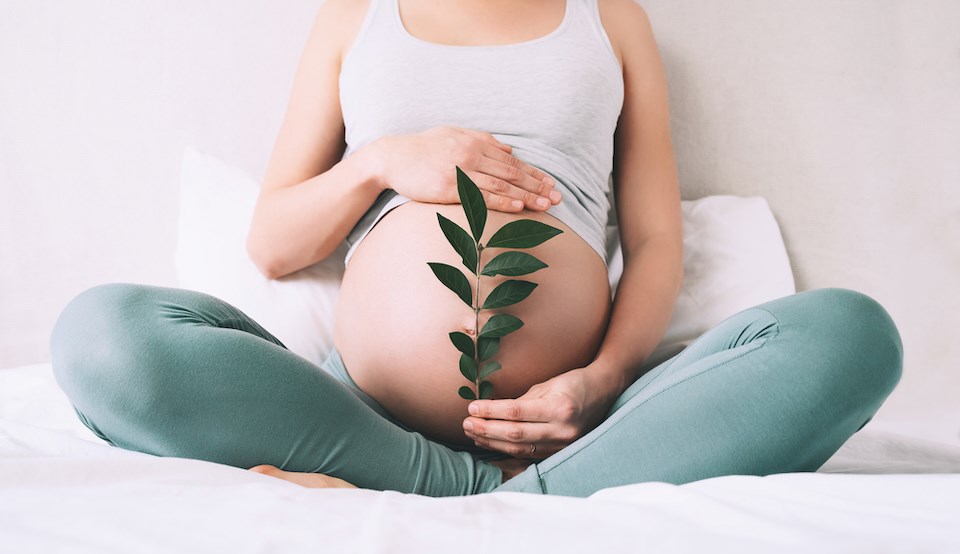Before you become pregnant, learn how to protect yourself and your child from serious diseases. Talk to your health care professional to make sure you’re up to date on all your vaccines.
Even if you can’t find your records, your health care professional can still protect your health and your baby by recommending the appropriate vaccines. Check out the seven tips below for important information you should know about maternal vaccines:
1. You aren’t just protecting yourself; vaccines during pregnancy give your baby some early protection, too. Did you know a baby gets disease immunity from mom during pregnancy? When you get the flu shot and Tdap vaccine while you’re pregnant, your body creates protective antibodies and you pass on some of those antibodies to your baby. This immunity can protect baby from some diseases during the first few months of life before your baby can get vaccinated. But immunity decreases over time.
2. Maternal vaccines are safe for you and your little one. Tdap and flu vaccines are safe for you and your baby. Experts carefully reviewed the available safety data before recommending Tdap and flu vaccines during pregnancy. Vaccines are like any medicine, which means they can have some side effects. But most people who get vaccinated have no side effects. Those who do experience side effects typically see mild redness, swelling and tenderness at the shot site.
3. Whooping cough can be dangerous for your baby. You’ll need a Tdap vaccine during the 27th through 36th week of each of your pregnancies. Tdap protects against whooping cough, which can be life-threatening for newborns. About half of babies younger than 1 year old who get whooping cough need treatment in the hospital. Some of these babies, particularly those younger than 2 months, don’t survive. While some babies cough a lot, other babies with whooping cough don’t cough at all. Instead, the disease can cause them to stop breathing and turn blue. Siblings, parents or caregivers who don’t know they have whooping cough can infect babies, since the disease often causes mild symptoms in older children and adults.
4. Catching flu when you are pregnant can lead to serious complications. You’re healthy, and maybe you’ve had flu before and it wasn’t that bad. But changes in your immune, heart and lung functions during pregnancy make you more likely to get seriously ill from flu. You also have a higher risk of pregnancy complications such as preterm labor and preterm birth if you get the flu. Catching flu might also increase your chances for serious problems for your baby. Children younger than 2 are more likely to end up in the hospital from flu. Get a flu shot if you are pregnant during flu season; it’s the best way to protect yourself from flu and prevent flu-associated pregnancy complications. Flu vaccine can be given during any trimester.
5. Timing is everything. You know all about timing. Week after week, you are tracking your baby’s growth and development and counting down the days until you meet your little one. When it comes to vaccines, timing is also key. Flu seasons vary in their timing from season to season, but the Centers for Disease Control and Prevention recommends getting vaccinated by the end of October. This helps ensure you are protected before flu activity begins to increase. While a flu shot protects you and your newborn baby, the Tdap vaccine primarily protects your baby. For this reason, you should get it in your third trimester, between the 27th and 36th week, so you pass the greatest number of protective antibodies to your baby before birth.
6. Anyone who is around your baby needs vaccines, too. Newborns do not have fully developed immune systems, making them particularly vulnerable to infections. Older kids and adults can infect babies with flu and whooping cough, even if they don’t feel sick themselves. Because of this, anyone who is around babies should be up to date on all routine vaccines, including Tdap and flu. This includes parents, siblings and any other caregivers, like grandparents, nannies or babysitters. Anyone who needs vaccines should get them at least two weeks before meeting the baby because it takes that long to develop antibodies after vaccination.
7. If you get pregnant again, you’ll need vaccines again. One and done doesn’t apply when it comes to vaccines that are recommended for pregnant women. The amount of antibodies you have in your body after getting vaccinated decreases over time. When you get a vaccine during one pregnancy, your antibody levels may not stay high enough to provide protection for future pregnancies, even if your babies are close in age. So, make sure you give baby number 2 (and 3 and 4) the greatest number of protective antibodies and the best disease protection possible by getting your whooping cough vaccine each time you are pregnant. You should also get a flu shot every influenza season.
This is a reprint on an article on BlackHealthMatters.com




